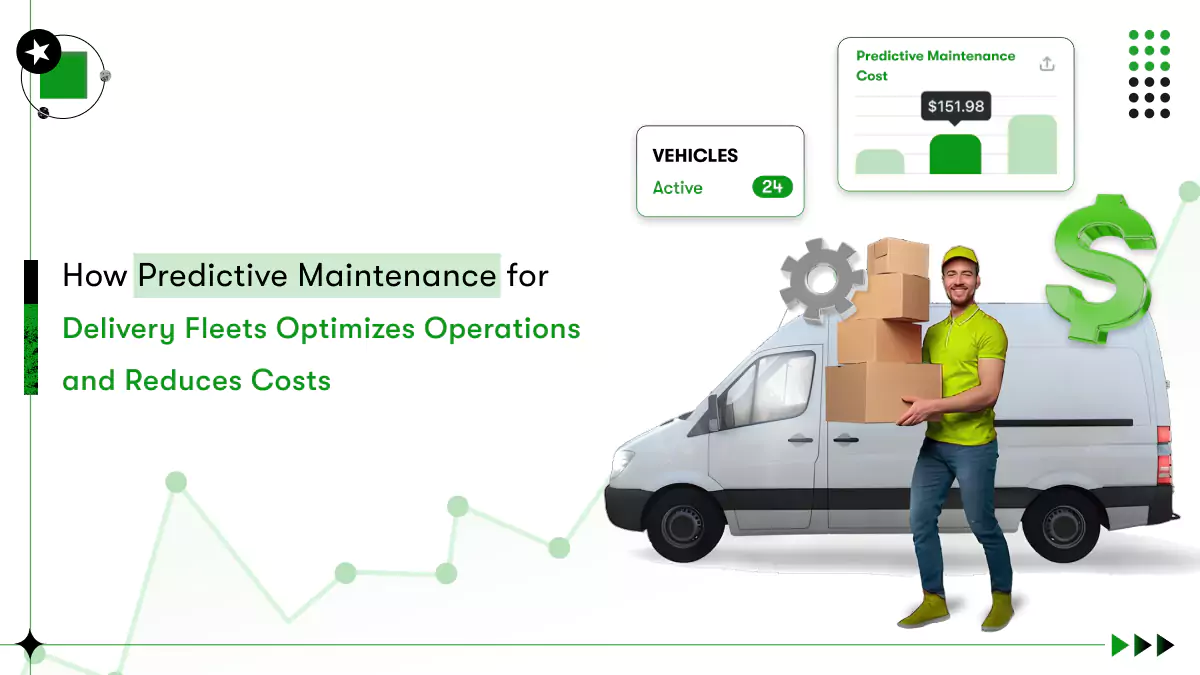Managing a warehouse entails a multitude of tasks, such as receiving incoming products, maintaining inventory, packing, shipping, and meeting customer demands. These complexities of operations frequently lead to inefficiency, system malfunctions, and missed business opportunities. Hence, when it comes to administering warehouse operations, it is essential to have a thorough comprehension of the various types of Warehouse Management Systems (WMS) available.
For example, an e-commerce brand with WMS can expedite order processing, improve inventory accuracy, and ensure timely shipments. All of which will contribute to an increase in customer satisfaction. In industries that deal with perishable commodities, such as food and pharmaceuticals, WMS with specialized features such as temperature monitoring has helped maintain product freshness, minimize waste, and comply with regulatory requirements.
By harnessing the potential of the technology, several types of WMS automate crucial tasks, speed up order fulfillment processes, offer valuable insights into inventory records, and foster communication across different departments.
Combining the right technology and type of WMS, you can automate crucial tasks such as order management, shipping label generation, and inventory management. This automation reduces human error, shortens processing time, and boosts overall productivity. When paired with Predictive Analytics in Warehousing, these systems can also forecast inventory needs, predict space utilization trends, and further optimize warehouse layout to maximize storage capacity.
We have been talking a lot about types of warehouse management systems, but do you know what a WMS is? Before we dive into different types of warehouse management systems, let’s clear your fundamentals about WMS.
What exactly is a Warehouse Management System (WMS)?
The Warehouse Management System (WMS) is a nexus that assists companies in effectively managing and controlling their warehouse operations. WMS enables businesses to automate and consolidate warehouse processes, improve inventory accuracy, enhance order fulfillment efficiency, optimize space utilization, and gain visibility into their supply chain operations in real-time.
In addition, the WMS provides visibility into warehouse operations by providing real-time data and analytics for monitoring key performance indicators (KPIs), identifying constraints, and making data-driven decisions for continuous process enhancement. There are various types of Warehouse Management Systems (WMS), each designed with unique capabilities and characteristics to address particular warehouse management requirements.
Now that we have a clear understanding of Warehouse Management Systems (WMS), it is time to explore its market statistics and projections.

Market Stats and Future Projections of Warehouse Management Systems
The global warehouse management systems (WMS) market reached $2.75 billion in 2022 and is expected to reach $7.30 billion by 2030.
WMS providers commonly outsource the provision of their systems to third-party vendors, with the service segment dominating the market in 2022, accounting for more than 81.5% of market revenue. From 2023 to 2030, the software segment of the WMS industry is anticipated to grow at a CAGR of 21.0%, while the transportation and logistics segment is anticipated to grow at a CAGR of 20.2% during the same time frame.
The current state of the industry clearly indicates a promising path toward substantial growth and positive developments. To navigate this growing landscape, it is crucial to explore the different types of warehouse management systems available. Each of them offers unique capabilities empowering businesses to optimize their efficiency.
What are the Different Types of Warehouse Management Systems?
It is essential to understand different types of Warehouse Management Systems (WMS) before you make a selection. There are four primary categories of warehouse management systems:
Standalone WMS
A standalone system has only a handful of features and may be ideal for small warehouse operations. It includes the two most essential warehouse management solutions: inventory management systems, and warehouse operations. As a warehouse cannot operate without these two components, standalone systems are ideal for those who only need to enhance these aspects of the supply chain.
It can also serve as an inventory management system. As a result, it is applicable to many fields besides warehouse management. This characteristic makes a standalone WMS suitable for small businesses or businesses with limited software budgets. The simplicity of the standalone system is the reason why it stands apart from the other types of WMS.
Key features:
- Order Management
- Inventory Management
- Real-Time Tracking
- Barcode Scanning
- Expiration Date Tracking
- Reporting and Analytics
- Return Management
Pros of Standalone System
- Customization: It is possible to configure standalone WMS solutions to specific business requirements, allowing organizations to alter the system to their distinctive warehouse processes and demands. Easily adaptable and compatible with other enterprise solutions such as ERP, SCM, IMS, etc.
- Functions Independently: It operates independently of other business systems. This independence enables businesses to exercise complete control over their warehouse operations and make judgments based on their targets and concerns.
- Productive and Efficient: A standalone WMS automates workflows, reduces human error, and optimizes resource allocation.
- Future-Proof: With a knack to adapt and scale, businesses can meet changing customer expectations, adopt new technologies, and remain competitive in the ever-changing logistics industry.
Cons of Standalone System
- Expensive: Implementing a stand-alone WMS can be expensive, particularly for small or medium-sized enterprises with limited funds.
- Complex to Customize: Customizing this system to meet specific business processes may demand substantial effort or technical knowledge.
- Limited Technicality: It lacks wider supply chain capabilities like vendor management, demand planning, and transportation management.
Ideal for:
A standalone WMS is suitable for organizations seeking a solution to manage their warehouse operations alone. This type of WMS is also ideal for businesses that use Excel spreadsheets to monitor inventory and warehouse operations and wish to scale their operations.
Supply Chain Modules
Various types of Warehouse Management Systems help fulfillment services manage their fundamental warehouse operations such as pickup, dispatch, and delivery. These are only a minor part of the supply chain as a whole. Here comes the Supply Chain Module into play.
From vendor relationships to business processes to risk assessment, it has an expansive scope. This type of warehouse management system necessitates the purchase of supply chain planning applications with warehousing capabilities. It provides 3PL companies with the opportunity to investigate the numerous benefits of SCM.
Combining WMS with other applications is an effective method for ensuring harmony between various business divisions. It facilitates holistic management of the entire supply chain, as opposed to stand-alone solutions that only cover warehouse management.
Key Features
- Shipping and Logistic Integration
- Risk Assessment
- Performance Analytics
- Supply Chain Visibility
- Current Market Activities
- Manufacturing and Raw Material Management
Pros of Supply Chain Module
- Cost Savings: As it decreases order processing time and increases warehouse productivity, it can result in cost savings. It assists businesses in reducing transportation costs and enhancing operational cost-effectiveness overall.
- Easy Integration: This module is compatible with ERP, CRM, and transport management systems. This integration assures a seamless flow of data, eliminates the need for manual entry, and provides a unified view of departmental operations.
- Enhanced Collaboration: The collaboration between suppliers, manufacturers, distributors, and customers improves coordination, quick response, and overall performance of the supply chain.
Cons of Supply Chain Module
- Increased Initial Cost: As it is one of the most functional types of warehouse management systems, it incurs substantial up-front expenses such as software licenses, and hardware implementation services.
- Requires Skilled Labour: SCM introduces complexity, particularly for organizations that are new to WMS. For this purpose, it requires skilled labor.
- Higher Maintenance: To maintain optimal performance and compatibility with other systems, businesses need to allocate resources and budget for routine system maintenance, bug fixes, and updates.
Ideal for:
The WMS module of a supply chain management system is ideal for organizations that need to integrate their warehouse operations and the whole supply chain into a single system.
Cloud-Based WMS
The cloud-based WMS operates on cloud servers rather than on-site servers. Due to its cloud-based nature, you can access it from anywhere with a web browser and an internet connection. It is also more reliable because it operates on redundant servers.
A cloud-based WMS is distinguished by its low IT maintenance, as it is hosted on a private server, depending on the vendor’s specifications. A separate or private server results in more stringent data security protocols, which is essential for businesses that oversee high-value inventory or merely want a more secure WMS.
Key Features
- API Integration
- Data Encryption
- Data Backup
- Multi-Location Support
- Automated Updates
- System Customization and Configuration
Pros of Cloud-Based
- Minimal Expense: Cloud-Based WMS does not require a long-term license or specialized hardware. This eliminates the substantial financial costs and replaces them with stable subscription fees.
- Flexible to Use: More adaptability to changing and varying market conditions.
- Less Complex: This is one of the types of warehouse management systems that is less complicated for the system’s end user. When the WMS solution is simple to use and accessible by everyday employees, warehouse operations can be more efficient and thoroughly optimized.
Cons of Cloud-Based
- Require Internet Connection: To operate Cloud-Based WMS, they require a robust internet connection for deployment and operation.
- Decreased Data Security: The vendor hosts the solution, reducing the business’s data security control.
Ideal for:
A WMS module within an ERP system is ideal for businesses with straightforward warehousing operations that wish to manage their entire business operations with a single system.
ERP-Integrated WMS
ERPs are robust software solutions that integrate the capabilities of numerous other systems. They provide the majority of the fundamental applications that streamline 3PL processes, including supply chain planning, procurement, accounting, customer relationship management, and human resource management, among others.
Although warehouse management is not an essential ERP module component, it is an excellent complement to warehouse management systems. Additionally, it is excellent for consolidating operations onto a single platform, which can be extremely advantageous for large supply chains. Read more on logistics ERP solutions.
Key Features
- Web-Based Interface
- Mobile Device Support
- Supply Chain Planning
- Order Management
- Inventory Management
- Accounting
- Customer Relationship Management (CRM)
Pros of ERP-Integrated WMS
- Beneficial to Long Supply Chain: Those with an extensive supply chain would benefit greatly from its ability to consolidate all business operations into one.
- Multi-Tasking at Once: It performs multiple operations through a centralized or unified interface.
- Compatibility: It can be easily integrated with other solutions.
Cons of ERP-Integrated WMS
- Expensive: Integration of your WMS and ERP is expensive due to the unique modules required.
- Complicated to Operate: It requires talent and training to operate. Hence it is also time-consuming until the users adapt.
- Not all ERPs are WMS-Oriented: Some ERP vendors do not offer WMS features, so if you’re not cautious, you may purchase a platform you don’t need.
Ideal for:
As it improves collaboration, it is suitable for medium and large businesses.
While there are numerous types of WMS available, a system that is specifically tailored to your company’s needs can provide substantial benefits. A customized warehouse management system offers several benefits that off-the-shelf systems may not. By deploying a custom-built solution, you can design a system that precisely corresponds with your warehouse’s unique operations and procedures.
Among the Different Types of Warehouse Management Systems, How to Select an Ideal One?
There are ideal functionalities that must be taken into consideration when making the final selection. Nevertheless, here are the following selection criteria as a starting point:
Establish the Needs
Identify the WMS features that your company will require the most. It will not only satisfy the specific requirements but will act as an interactive template that will guide you through the process.
This guide may help you in deciding the features you want for your warehouse solution: Must Have Warehouse Management System Features
Compare the Different Solutions
Compare the different types of Warehouse Management Systems available based on how well they meet your needs. Consider factors such as scalability, integration capabilities, specialized features, and ease of use when comparing the various types of Warehouse Management Systems (WMS) to find the best match for your requirements.
Here is a checklist you can follow to compare solutions or to keep for reference while developing your own custom warehouse management software:

However, off-the-shelf WMS solutions include the given features, aligning with the standard warehouse management requirements. They may, however, lack the adaptability to accommodate unique or changing requirements. With comparative analysis, you can determine precise requirements and determine the right one for your business.
Consider Vendor Capabilities
After comparison, begin by evaluating the vendor’s commitment and technology’s dependability. You can also review the feedback for the potential WMS solutions. In addition to assessing a vendor’s capabilities, it is essential to evaluate the vendor’s industry experience, reputation, and financial stability. Evaluate their track record of implementing WMSs successfully and their capacity to provide comprehensive training and customer support.
Obtaining feedback from current customers and industry experts can further validate the dependability and performance of potential WMS solutions, allowing you to make a well-informed selection of a vendor that meets your unique warehouse management requirements.
Request Information
You can either ask the shortlisted vendor to request demonstrations and trials of each system to determine its ease of use or consult the WMS development company for a bespoke solution. You can obtain customized price quotations and gain a general understanding of industry prices.
Also Read: How Much Does Developing a WMS Cost?
Count On Us for an Ideal Warehouse Management System
When partnering with Kody Technolab, you can confidently focus on other crucial aspects of your business operations. Our robust Warehouse Management System Software (WMSS) ensures that all your needs are met, providing comprehensive coverage for your business.
We have a highly skilled custom logistics software development team that is committed to providing you with exceptional service. Our commitment to delivering high-quality services is complemented by competitive pricing, ensuring that our customers receive maximum return on their investment.












 Contact Information
Contact Information